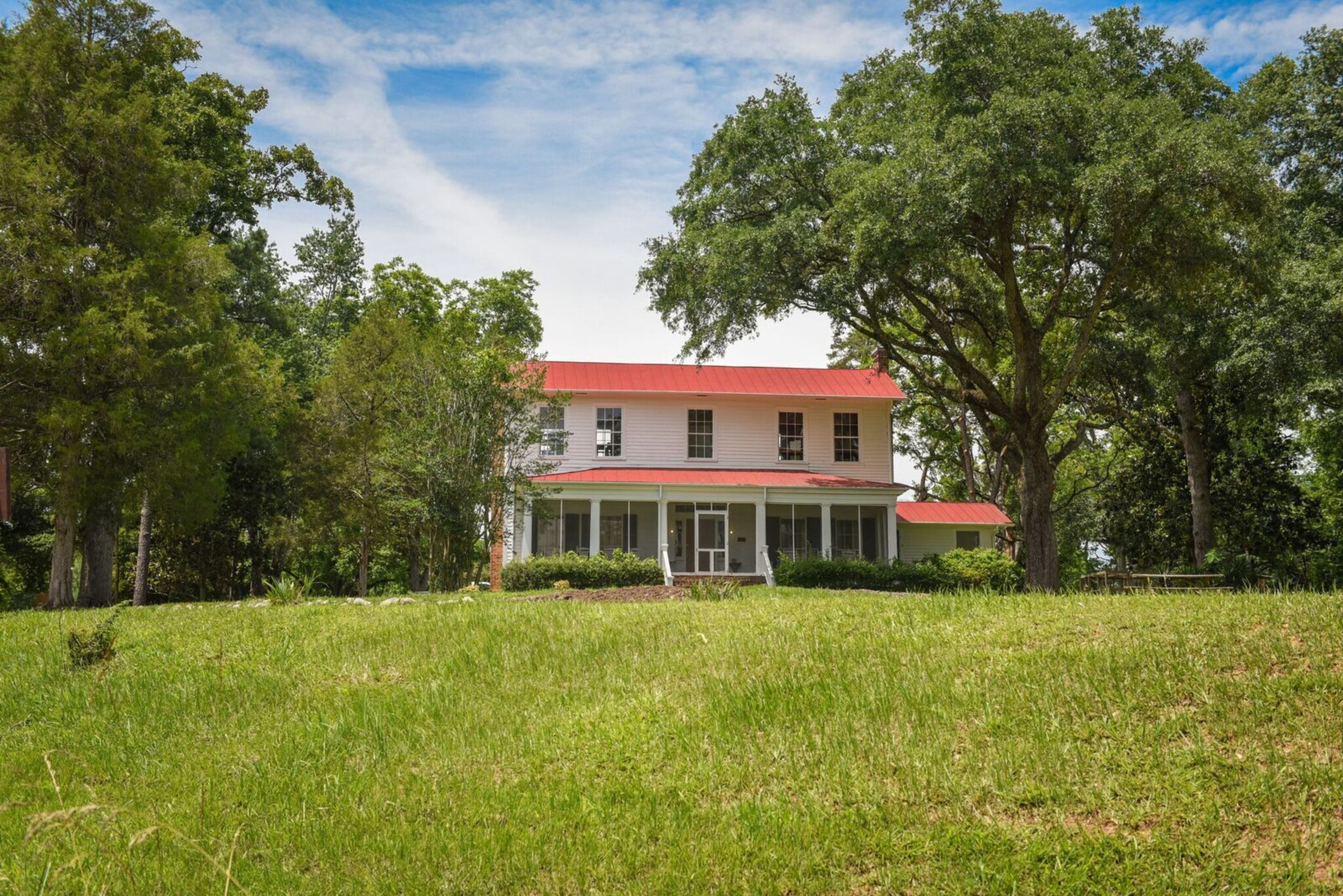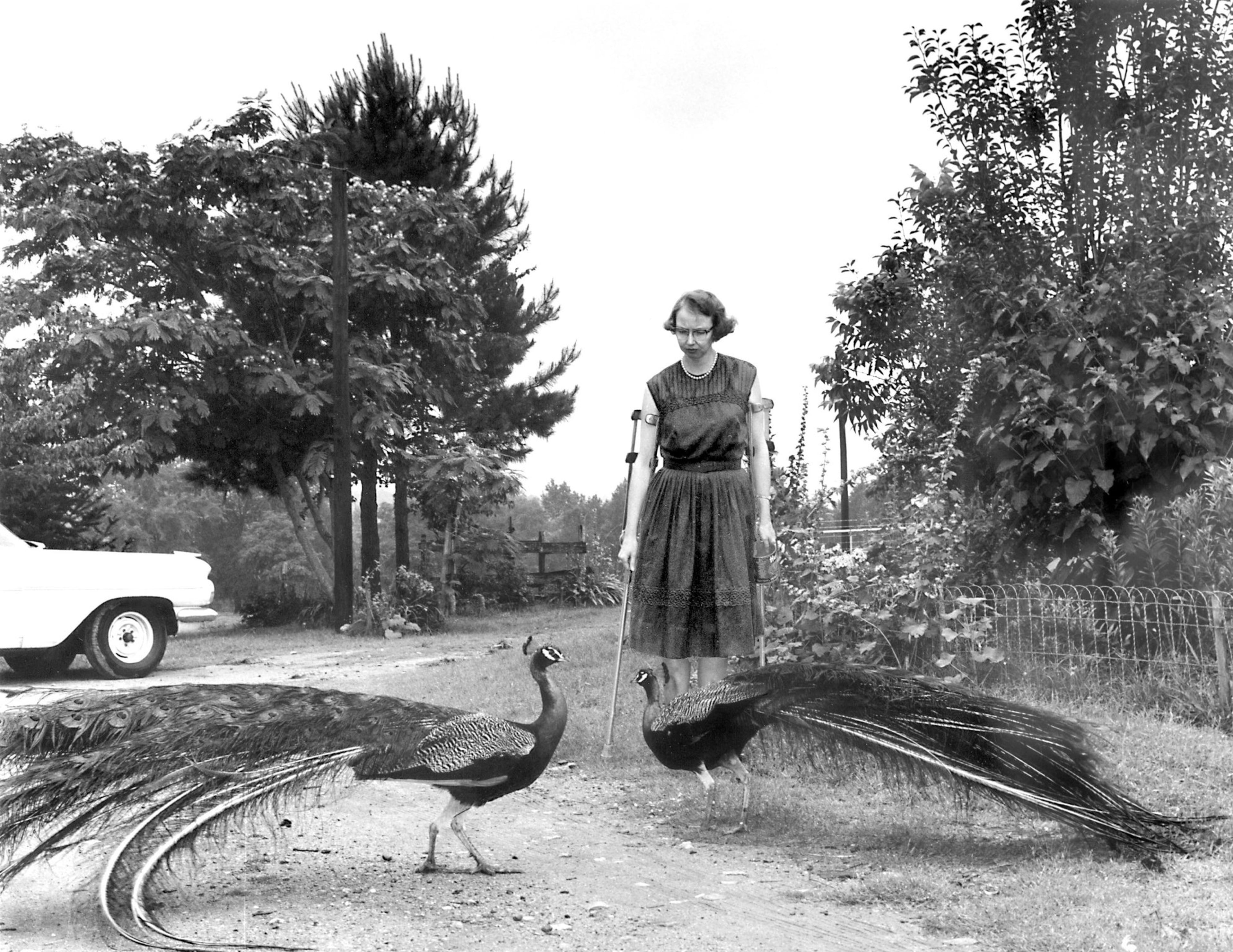Flannery O’Connor’s Andalusia reopens in Milledgeville
Andalusia, the Milledgeville farm where Flannery O’Connor wrote most of her fiction, is welcoming visitors once more.
Its new owner, Georgia College and State University, has spent much of the past year painting, sealing and repairing the 200-year-old farmhouse and its outbuildings. It reopened to tours June 19, with extended hours.
In the short term, the paint and repairs have stabilized the house against the ravages of time. More importantly, Andalusia's chances of long-term survival, once in doubt, were bolstered last year when the state college agreed to accept the historic property as a "gift."

As a present, Andalusia was a mixed blessing. Since opening in 2003 as a museum dedicated to the famous Georgia writer, the 500-acre attraction has struggled financially.
The house had been O'Connor's home for the last 13 years of her life. She returned there from the Northeast to convalesce, after a flare-up from the lupus that had plagued her since age 15. While living in the care of her mother, Regina Cline O'Connor, she wrote most of her best-known work, including most of the novel "Wise Blood," the novel "The Violent Bear it Away" and the short story collection "A Good Man Is Hard To Find."
O’Connor died in 1964 of complications from lupus, the same disease that killed her father. She was 39.

The historic property was turned over to the private Andalusia Foundation, which operated it as a house museum. But donations never covered costs. “We were just kind of waiting around for a miracle, and it did not happen,” said Bruce Gentry, a member of the foundation’s board and professor of English at Georgia College. “We tried every kind of Hail Mary pass you could do.”
When Steve Dorman, president of Georgia College, expressed an interest in the property, Gentry pointed out that the cost of operating Andalusia was about $250,000 a year. "I rather expected him to say 'We can't do that,'" said Gentry.
Instead, Dorman and his superiors in the university system, were gung ho. “She’s a Georgia treasure and an American treasure,” Dorman told the Associated Press last year, declaring “we’re very honored.”
In addition to sprucing up walls and floors, the university has loaned some items to Andalusia from its special collections, including O’Connor’s old bookcase, a desk, a typewriter and some figurines, according to Matt Davis, director of historic museums at Georgia College. Eventually Davis plans to move the gift shop out of the house and put it in a planned visitor’s center.

Such a center would not only offer a venue for a short interpretive film and a way to introduce visitors to O’Connor’s work, it could also address a more pressing need. Restrooms. There’s only one stall at the house.
“You’d have a tour bus pull up and 50 people got off and they all had to pee,” said Gentry. “So you’d spend the first 45 minutes trying to chit chat with a few people here and there, waiting for one person at a time to go to the bathroom. It was a very awkward situation.”
Andalusia is more than a museum. O’Connor, isolated on a farm in Middle Georgia, had to work with the material at hand to come up with her sometimes outrageous stories. That material was the dairy farm, its tenants Jack and Louise Hill, the laborers and neighbors and people of Milledgeville and, most of all, her mother and herself.

“She used everything that was going on in that farm in a story,” said Gentry. Therefore, he said, the farm offers insight into O’Connor’s work as well as her life.
Filmmaker Bridget Kurt is glad to see Andalusia healthy. Her 2017 documentary, "Uncommon Grace: The Life of Flannery O'Connor," includes scenes filmed on the farm and will be screened this Labor Day weekend at the AJC Decatur Book Festival. Andalusia, she said, offers a tangible sense of O'Connor's life. The attraction will also help introduce a new generation to O'Connor's work, she said.
“She’s not being taught anymore in most Georgia high schools,” said Kurt. “In her home state her legacy is at risk.” During research for the documentary, she discovered that “students, even college students, didn’t know who Flannery O’Connor was. People in town didn’t know.”

Significant restoration has yet to be completed on the farmhouse, a process that will take years, said Gentry, who also edits the Flannery O’Connor Review, a literary journal with a new issue coming out in August.
Georgia College has hosted occasional O’Connor conferences, and Gentry is planning another one in 2025, the 100th anniversary of O’Connor’s birth. That seems like a distant date, he said, but predicted it might be just enough time to get the house and property restored.
“They’ve said they’re going to renovate those 14 buildings out there, and some of those buildings are just piles of sticks.”
IF YOU GO
Andalusia Farm. 2628 N. Columbia St., Milledgeville, Ga. Tours 10 a.m.-4 p.m. Tuesday-Saturday. $7-$2. 478-445-8722, www.gcsu.edu/andalusia


